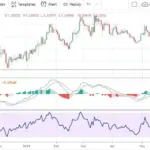When it comes to building long-term wealth, few concepts are as powerful—or as underestimated—as compound interest. Often called the eighth wonder of the world, compound interest is the quiet force that helps your money grow exponentially over time. Whether you’re saving, investing, or planning for retirement, understanding how it works can completely transform your financial future.
What Is Compound Interest?
In simple terms, compound interest means earning interest on both your initial money (the principal) and the interest that accumulates over time. Unlike simple interest, which only grows based on your original amount, compound interest allows your wealth to multiply as your earnings generate even more earnings.
Formula:
A = P(1 + r/n)ⁿᵗ
Where:
- A = Final amount
- P = Principal (starting amount)
- r = Annual interest rate
- n = Number of times interest is compounded per year
- t = Number of years
Don’t worry about the math—what matters is this: the longer you stay invested, the greater the compounding effect.
How Compound Interest Works
Let’s say you invest $1,000 at an annual interest rate of 8%, compounded yearly.
- After 1 year: $1,080
- After 5 years: $1,469
- After 10 years: $2,159
- After 20 years: $4,661
You didn’t add any extra money, yet your investment more than quadrupled in 20 years. That’s the magic of compounding—it rewards time and patience more than timing or luck.
The Power of Starting Early
The biggest advantage of compound interest is time. The earlier you start, the more your money grows—even with small contributions.
Let’s compare two investors:
- Ali starts investing $200 a month at age 25.
- Bella starts at age 35 with the same amount.
Assuming both earn an average of 7% annually and invest until age 60:
- Ali will have around $228,000.
- Bella will have around $112,000.
Ali invested only 10 years earlier, but ends up with double the wealth—thanks entirely to compounding.
The lesson? Time in the market beats timing the market.
Where Compound Interest Works Best
1. Savings Accounts and Fixed Deposits
While returns may be modest, compounding helps savings accounts grow steadily. High-yield savings accounts or fixed deposits are great for short-term goals and emergency funds.
2. Retirement Accounts
Accounts like EPF, PRS, 401(k), or IRA allow your money to compound tax-deferred. Over decades, this can turn consistent contributions into a substantial retirement fund.
3. Stock Market Investments
Investing in index funds, ETFs, or dividend reinvestment plans (DRIPs) lets you reinvest earnings and maximize compounding. Long-term investors benefit the most from this strategy.
Tips to Maximize Compound Growth
- Start Early – Even small amounts invested today can grow significantly over time.
- Stay Consistent – Regular contributions amplify the compounding effect.
- Reinvest Earnings – Don’t withdraw interest or dividends; let them grow.
- Avoid High Fees – Management fees and unnecessary withdrawals can slow your growth.
- Be Patient – Compounding works slowly at first but accelerates dramatically over time.
The Flip Side: Compound Interest in Debt
Compound interest doesn’t only work for you—it can also work against you. Credit card balances, payday loans, and certain debts use compounding to increase what you owe over time.
For example, a $1,000 credit card balance at 20% annual interest can balloon to over $1,200 in just one year if unpaid. Understanding this helps you use compounding wisely—as an ally, not an enemy.
The Silent Wealth Builder
Compound interest is powerful because it’s quiet, consistent, and unstoppable when given time to work. It doesn’t require luck or high income—just discipline, patience, and smart financial habits.
The secret isn’t in earning the highest return—it’s in starting early, contributing regularly, and letting time do the heavy lifting.
Conclusion
Compound interest truly is the silent wealth builder. It rewards those who think long-term and punishes procrastination. By harnessing its power through consistent saving and investing, you can turn modest beginnings into lifelong financial freedom.
Remember: It’s not about how much you start with—it’s about how long you let it grow. 🌱














